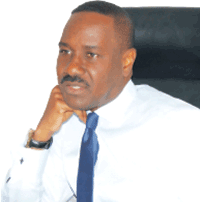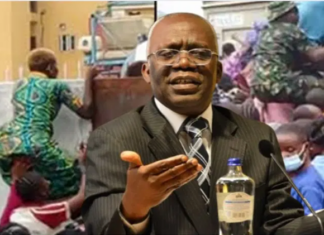In the late 1980s and through most of the 1990s, there was a unified struggle for democracy and good governance in Africa, which led to changes and reforms in politics of (and the constitutions in) many African countries. Since then, democratic practices and processes have progressed at different speeds and directions in different African countries.
These changes are apparent in various facets of different economies. For example, the marginalised in the society – women, children and the disabled – now have means through which they can air their opinions on policy agenda. Also, bodies such as the African Union (AU) and the New Partnership for Africa’s Development (NEPAD) have defined new parameters through which good governance are measured and new benchmarks have been provided for a new governance culture in Africa. Governance indexes such as the Ibrahim Index of African Governance (IIAG) have also been monitoring the quality of governance in Africa. According to IIAG’s 2013 report, 94 per cent of Africans live in a country when overall governance has improved since 2000.
Despite the recorded improvements in the overall governance, Africa is still faced with several formidable challenges in the consolidation of democratic governance. While there has been stability in the occurrence of elections in most African countries, the election process is still deeply flawed in most African countries, Nigeria not being an exception.
The success of the electoral processes and the promotion of good governance are regularly inhibited by factors such as violence, corruption, manipulation of voters, illiteracy and in recent time terrorism/lack of a secure environment. Socio-economic agitations, ethno-religious crisis, ethnic militias, boundary disputes, cultism, criminality and organised crimes are some of the other governance/security-related problems confronting Nigeria.
Most of the above listed problems, and not forgetting armed robbery, kidnapping and political thuggery, are found among the unemployed and jobless youths in the nation and have contributed greatly to the slow pace of development in Nigeria.
The future of Nigeria belongs to the youths. They have tremendous roles to play towards national development and integration. Unfortunately, they are not given the necessary attentions by the authorities concerned in incorporating them into the process of national development. Because of the importance of involvement of youths and their ability to make positive changes, the United Nations in 1985 drew the attention of the global community on the important roles of young people which prompted declaration of that year as international youth year for development and peace.
Some of the challenges facing our youths and inhibiting their positive roles in nation building, peace keeping and good governance are listed below:
Unemployment – From available statistics, especially the 2006 census figures, Nigeria has a youthful population of about 80 million which is about 60 per cent of her population. Statistics have it that 54 per cent of this number were unemployed by 2013.
Poverty – It has been estimated that 70 per cent of our population live below the poverty line of less than $2 to $4 per day, and majority of those affected are young people. Illiteracy – Education is vital to poverty reduction and national building in any country including Nigeria. Unemployment leads to poverty, which leads to people dropping out of or not going to school, which leads to illiteracy, which then leads back to unemployment.
Lack of political space for youth – Most African governments lack the political will to involve, organise and engage youths in policy formation and governance. An example is the ongoing national conference where the average age of the participants are those in their 60s and 70s while the majority of the population they are making decisions for are in their 30s and 40s.
Lack of platform for exchange – There is lack of platforms at community and national levels for youths to exchange ideas and get involved in the political process.
Way forward
Educate youths about peace, governance, security and human rights.
Facilitate the establishment of youth networks and generally enhance partnership, information-sharing and cooperation among youths, government and other development partners.
Facilitate the establishment of platforms for cross-cultural and interfaith dialogue among youths from different social, political and religious backgrounds.
Create a culture of tolerance through which social, political or religious opinions, similarities and differences could be expressed, discussed and appreciated in peaceful ways
Provide educational and employment opportunities targeted specifically at youths.
Improving the physical, social and mental health of youths.
Eliminating all forms of violence and discrimination against the youth.















